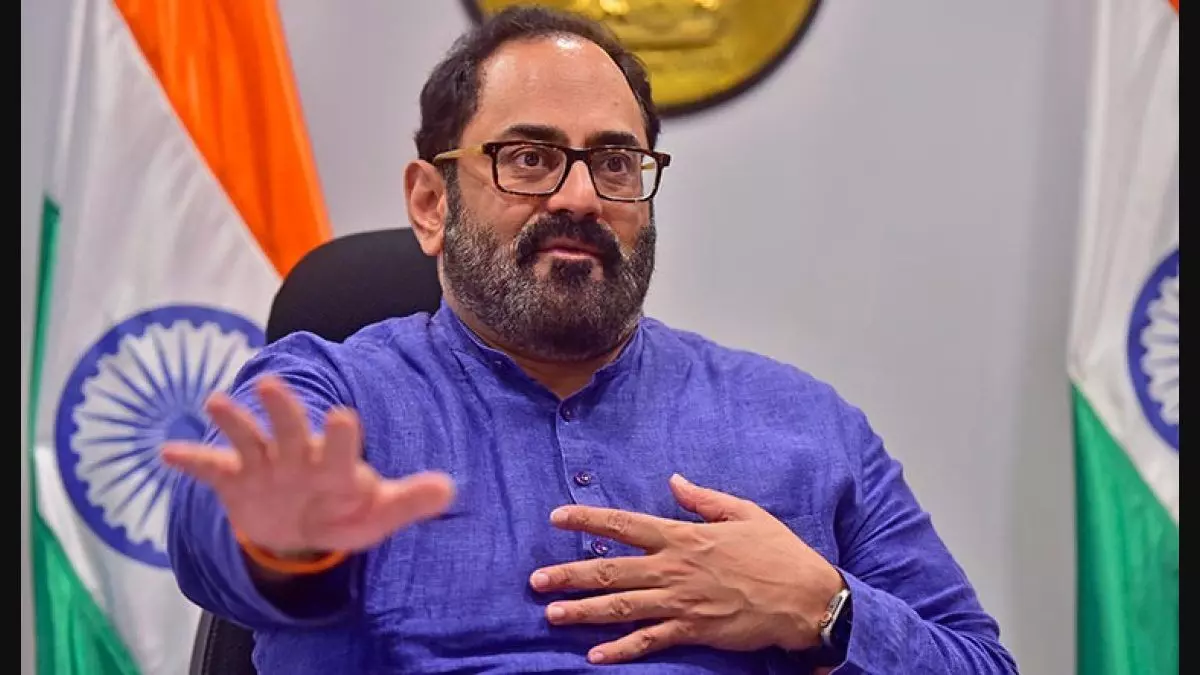
Govt's Fact Check Unit likely to have 4 members & a website to publish 'fake' content
text_fieldsThe Ministry of Electronics and IT (MeitY) had on Thursday notified amendments to the Information Technology Rules, 2021, giving power to the Press Information Bureau (PIB) to flag content related to the government on online platforms as “fake” or “misleading”.
If the content is marked as fake by the body, then the online platforms are bound to take it down if they wish to retain their ‘safe habour’.
The Fact Check Unit (FCU) is likely to have four members, a representative from the IT Ministry and one from the Ministry of Statistics and Program Implementation, a “media expert” and a “legal expert”, says the report.
This composition would likely assuage concerns by the critics about the Fact Check Unit’s potential lack of expertise. “The unit will be supported by designated nodal officers from other ministries,” a senior government official said.
According to the official, the government is close to finalising the contours of the Fact Check Unit and its interplay with social media sites like Meta, YouTube and Twitter.
“We aim to notify the Fact Check Unit and related details in about ten days. The unit will uphold the highest levels of professional and ethical standards to ensure trustworthiness and neutrality in the identification of potentially misleading or fake content,” the official said as quoted by The Indian Express.
The FCU is expected to require platforms to “prominently display” when they take content down on the basis of the unit’s inputs, allow for an appeal process with a government committee, and maintain a public database of content it deems as misleading, reports The Indian Express.
The FCU is also expected to have a designated website of its own where it will publish the links to pieces of content that it has identified as fake or misleading.
The MeitY has also reportedly finalised the broad-level processes that the FCU will follow, including granting it suo motu powers to identify potentially misleading content, corroborating evidence across various ministries and departments, and communicating its conclusion to social media platforms.
While the government assures that the move is to curb misinformation on the internet, critics are terming it censorship and asking the centre to withdraw it.
The Congress and several other Opposition parties, including the TMC, RJD and CPI(M), have come down heavily on the government over its decision. So have digital rights activists and press associations like the Editors Guild of India. The Editors Guild of India described the rules as draconian, calling for its withdrawal.
The new rules have already faced a legal challenge, with comedian Kunal Kamra approaching the Bombay High Court questioning its constitutional validity.
The Centre’s lawyer in the case, Additional Solicitor General Anil Singh, has told the court there will be a separate notification regarding the FCU, and there was, therefore, no urgency to hear the plea. The next hearing in the case is scheduled on April 21.
The MeitY has not responded so far.
Under the new rules, taking down content labelled as fake has been specified as due diligence requirements that online media platforms and internet service providers like Airtel, Jio and Vi, are expected to fulfil in order to preserve safe harbour protections afforded to them under Section 79 of the Information Technology Act, 2000.
If they choose not to take down content flagged by the unit as fake, the government could take them to court.
The government is also planning to establish an appeals mechanism when it notifies the unit. The general understanding so far was that people whose content may have been taken down by platforms after FCU’s inputs would have had to approach the courts to appeal the decision with no other avenue of recourse.
The final notification on the unit is expected to clarify that understanding and allow aggrieved parties to seek recourse at one of three government-appointed appeal committees that the Centre had set up earlier this year. “Any person aggrieved by the action of the intermediaries, based on the information identified as fake or false by the FCU, may take the standard route of appeal as per IT Rules,” the official said, reports The Indian Express.
On Thursday, the MeitY notified amendements to the IT rules, 2021, which allows the Ministry to appoint the fact-check body.
The final rules come months after the Ministry first proposed in January that any piece of news that has been identified as “fake” by the fact-checking unit of the Press Information Bureau (PIB), the Centre’s nodal agency to share news updates, will not be allowed on online intermediaries.
However, the final draft has removed the reference to PIB.























